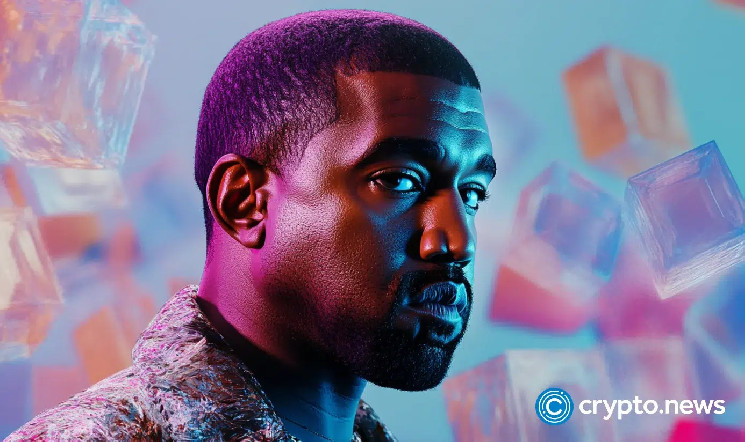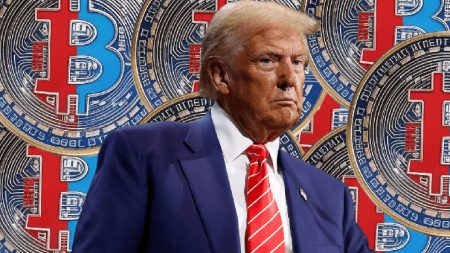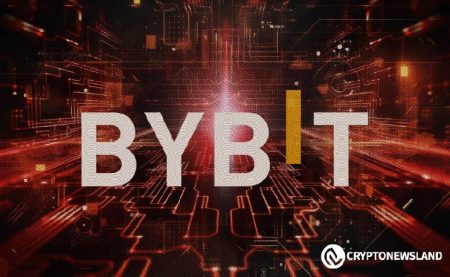The Controversy Over Kanye West’s Swasticoin: A Spark in the Crypto Wildfire
The cryptocurrency world, known for its innovative and often unconventional projects, has recently found itself at the center of a heated debate following Kanye West’s announcement to launch a cryptocurrency token called “Swasticoin.” West, who now goes by “Ye,” revealed his plans through a series of provocative social media posts, which included antisemitic remarks and announced his intention to prioritize Jewish people, friends, and family in accessing the token. This move has not only sparked outrage but has also brought attention to a worrying trend in the crypto space: the rise of racist and offensive meme coins that exploit blockchain technology to spread harmful ideologies.
West’s announcement is particularly controversial given his previous criticism of celebrity-backed coins that he claimed “prey” on fans. However, his recent posts suggest a shift in his stance, as he now appears to be preparing to launch his own token, potentially named “YZY,” possibly as a workaround for Shopify’s restrictions on his Yeezy store. The token, which would keep 70% of its supply for West himself, has raised suspicions about its true purpose, with many questioning whether it is more about financial gain than any ideological statement.
The Rise of Racist Meme Coins: A Troubling Trend in Crypto
Kanye West’s proposed token is not an isolated incident. Over the past year, a wave of meme coins promoting extremist ideologies has emerged, raising concerns about the role of decentralized platforms in allowing the spread of offensive content. These tokens often use racial slurs, Nazi imagery, or other hateful symbols in their branding, aiming to attract attention from fringe online communities. For instance, a token named “Hitler Musk” appeared on the platform Pump.fun, referencing Elon Musk’s alleged fascist gestures during an event. Similarly, a token named “HITLER” briefly surfaced in 2021 before being delisted from exchanges, while another coin, “Groyper,” has been linked to far-right online communities.
These tokens, while often short-lived, highlight how blockchain technology—despite its open and permissionless nature—can be exploited to propagate harmful ideologies. Their presence in the crypto space underscores the challenges of balancing the principles of decentralization with the need to prevent the spread of offensive content. The issue has sparked debates about whether decentralized platforms should implement content moderation and how to do so effectively without undermining the core principles of blockchain technology.
Addressing the Issue: Industry Leaders Speak Out
As the number of racist meme coins continues to grow, some figures in the crypto industry have begun to take steps to address the issue. The Solana Foundation, for example, has acknowledged the problem and suggested that in-app filtering could be a potential solution. Austin Federa, the foundation’s head of strategy, proposed that wallet apps and decentralized exchanges could screen out tokens with offensive names or imagery. However, implementing such measures in a decentralized system presents significant challenges, as the lack of central authority makes it difficult to enforce uniform standards across the ecosystem.
Ethereum co-founder Vitalik Buterin has also weighed in on the issue, criticizing the rise of meme coins associated with dictatorships and racist themes. Buterin has called for higher-quality projects in the crypto space and expressed his “zero enthusiasm” for projects driven by scams, rug pulls, or fleeting excitement that ultimately disappoint investors. His comments reflect a growing concern within the industry about the proliferation of low-value, speculative assets that provide little benefit beyond short-term hype. However, the ease with which anyone can create a token using meme coin generators like Pump.fun, without oversight or accountability, means that the problem persists.
The Future of Meme Coins and Their Implications
Looking ahead, the future of meme coins and the broader crypto space remains uncertain. Kanye West’s proposed token, which could potentially be named “YZY,” is intended to circumvent Shopify’s restrictions on his Yeezy store, with reports suggesting that West plans to retain 70% of the token’s supply for himself. This has fueled speculation that the project is more about financial gain than any ideological statement. West’s history of attempting to monetize Nazi imagery, including selling T-shirts labeled “HH-01” (widely interpreted as shorthand for “Heil Hitler”), which were later removed after a Super Bowl ad directed traffic to his website, further raises concerns about his motivations.
Despite West’s claim that the token will launch soon, it remains unclear whether the project will materialize or if it is another instance of inflammatory rhetoric designed to provoke outrage. His latest post, which simply read: “Time to launch my own blockchain,” leaves his actual crypto ambitions uncertain. West’s inspiration for the token reportedly came from Official Trump (TRUMP), a meme coin launched by former President Donald Trump just two days before his second inauguration. The TRUMP token, which is currently down 78% from its all-time high, has also raised eyebrows due to its massive insider-ownership distribution, with 80% of the token currently held by CIC Digital, a business entity with ties to the president. West, too, initially wanted an 80% ownership stake but was negotiated down to 70%, according to CoinDesk. Should his token achieve even a fraction of TRUMP’s success, his stake could still be worth many millions of dollars.
The Challenge of Content Moderation in a Decentralized World
The proliferation of racist meme coins has brought the issue of content moderation in the crypto space to the forefront of industry discussions. Decentralized platforms, which operate without a central authority, face unique challenges in addressing the spread of offensive content. While some industry leaders, like the Solana Foundation and Vitalik Buterin, have called for measures to curb the spread of such tokens, the lack of centralized control makes it difficult to enforce uniform standards across the ecosystem. The open and permissionless nature of blockchain technology, which is one of its core strengths, also makes it vulnerable to exploitation by bad actors seeking to spread harmful ideologies.
The debate over content moderation in the crypto space raises important questions about the balance between free speech and the need to prevent the spread of offensive content. On one hand, the decentralized nature of blockchain technology is a key aspect of its appeal, as it allows for censorship resistance and gives users the freedom to transact without intermediaries. On the other hand, the lack of oversight can enable the creation and promotion of tokens that promote hate speech, racism, and other harmful ideologies. As the crypto industry continues to evolve, finding a way to address these issues without undermining the core principles of decentralization will be a major challenge.
The Filtering of Racist Meme Coins: A Step Toward Moderation
In response to the growing problem of racist meme coins, some in the crypto industry have proposed solutions to filter out offensive tokens. The Solana Foundation’s suggestion of in-app filtering is one such approach, which would allow wallet apps and decentralized exchanges to screen out tokens with offensive names or imagery. This would help to reduce the visibility of such tokens and make it more difficult for them to gain traction in the market. However, implementing such measures in a decentralized system is no easy task, as it would require coordination across different platforms and users.
Another approach is to educate users about the risks and implications of supporting such tokens. By raising awareness about the harm caused by racist meme coins, the crypto community can work together to create a more inclusive and respectful environment. Industry leaders can also play a crucial role by promoting higher-quality projects and discouraging the creation and promotion of tokens that perpetuate hate speech or extremist ideologies. While these measures may not completely eliminate the problem, they can help to mitigate its impact and promote a more positive and constructive culture within the crypto space.
In conclusion, the rise of racist meme coins in the crypto space highlights the challenges of balancing the principles of decentralization with the need to prevent the spread of harmful content. While the industry has made some progress in addressing the issue, more needs to be done to ensure that blockchain technology is used responsibly and for the benefit of all users. The controversy over Kanye West’s Swasticoin is just one example of a broader trend that underscores the need for greater awareness, education, and collaboration within the crypto community.















